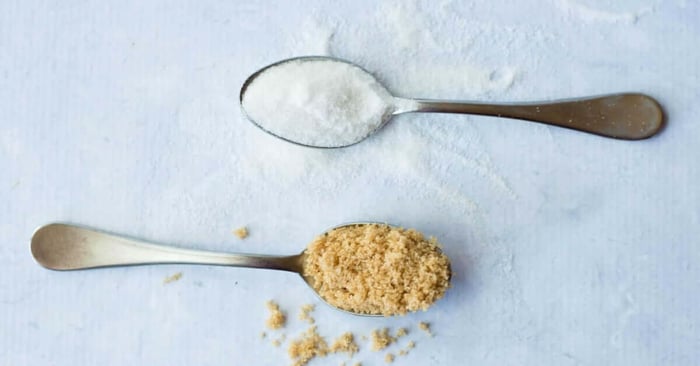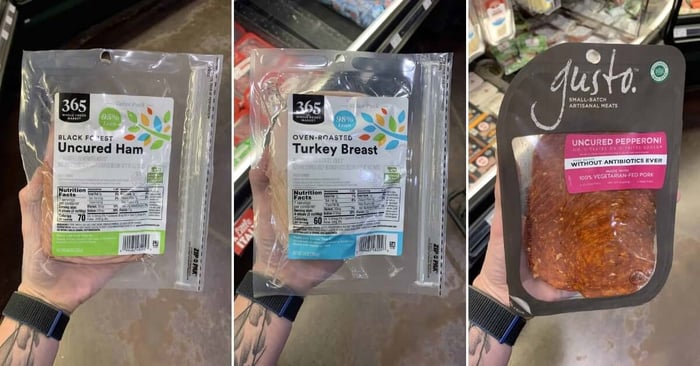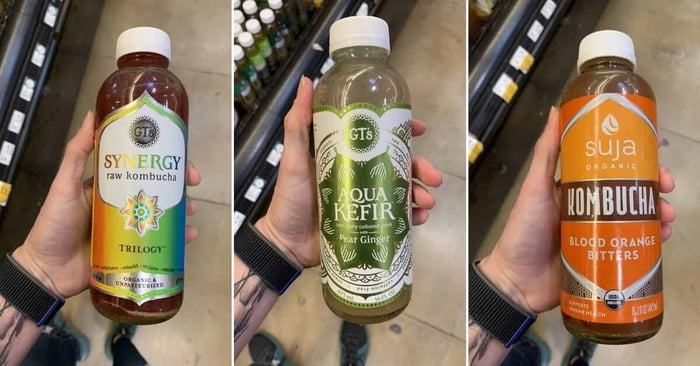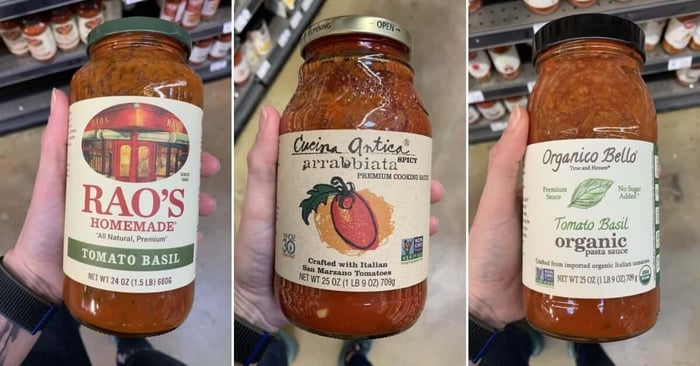In this post, Healthiest Sweeteners Guide, we'll look at healthy substitutes for sugar. We'll cover why these choices are better alternatives to highly refined sugar. Plus, I'll tell you about one substitute I never use, and why you shouldn't either.
If you need more help on finding the best sugar options and found my post on Healthiest Sweeteners Guide to be helpful, then check out my post on How To Find Hidden Sugars, How To Quit Sugar, Best Foods To Lower Blood Sugar.
In This Post You'll Find:
If you have been following me for a while, no doubt you have read my post on How to Quit Sugar and watched the video, too. You know that I used to Struggle With My Weight and that I had an unhealthy relationship with sugar, as many of us unknowingly do.
I knew that in order to maintain the clean eating lifestyle that I had started to keep, I had to take a big step. A move forward in my journey to good health. And yes, that step was to finally quit sugar.
Realistically, we know that giving it up totally is impossible because many of the foods that we eat contain sugar. So, what I mean is, that I gave up highly processed sugar that is stripped of its nutritional value. Now, I try to consume only natural sugars found in clean, wholesome foods.
But of course, I do have to add ingredients when I cook and bake that add sweetness when required. And that’s when I look to healthy sugar substitutes like pure maple syrup, coconut sugar, and raw honey. These are my top 3 picks and my go-tos whenever a recipe calls for a sweetener.
So, let’s take a look at how much better these 3 picks are than refined sugars. Then, we’ll look at a few more sugar substitutes and cover how they are useful as replacements for highly processed sugars in my Healthiest Sweeteners Guide. And of course, there’s the one alternative I NEVER use, agave nectar.
1. PURE MAPLE SYRUP
Pure maple syrup. Yum! Besides being amazingly delicious and all-natural, pure maple syrup contains antioxidants (24 to be exact!) and nutrients like potassium, manganese, and iron. It has a low glycemic index score, and also has the potential to reduce inflammation in the body. This bonus makes pure maple syrup one of my top picks as a sugar substitute. It’s a great addition to a Tasty Vanilla Latté!
Other good things about maple syrup are:
- This sweetener has a 1:1 ratio of any liquid sweetener or honey, so is easy to use in recipes
- If you are a vegan and don’t want to consume raw honey, pure maple syrup is the ideal replacement
2. RAW HONEY
Raw honey is a nutritional powerhouse when it comes to sugar substitutes. Honey, in its raw form, contains royal jelly, beeswax, and pollen.
It also contains propolis, also known as bee glue, because the bees use it to fill crevices and seal honeycombs. Propolis is known to have anti-inflammatory, antibacterial, and infection-fighting properties.
Amino acids and enzymes are found in honey, too. Other things to know about raw honey:
- Buy raw honey, not pasteurized or filtered to get these benefits, so be sure to look for that as you shop
- Use raw honey if you have a recipe that calls for a liquid sweetener that does not need to be heated too high (you don’t want to lose the nutrients in the cooking process)
- Conveniently, the ratio is 1:1 just like the pure maple syrup
- It’s great on veggies like Roasted Brussel sprouts or used in a Honey Mustard Dressing
3. COCONUT SUGAR
Coconut sugar is made from the sap of the coconut palm. It is extracted and made into granules by boiling them. Inulin, a type of fiber, slows glucose absorption and, therefore, gives this sugar substitute a lower glycemic index than highly processed sugar.
- Coconut sugar has a 1:1 ratio to granulated sweeteners and tastes similar to brown sugar
- Potassium and antioxidants are found in coconut sugar
- Sweeten dishes like Healthy Cinnamon Apples as a low GI sugar replacement
4. MOLASSES
Molasses is made from boiling down sugar beet juice or cane sugar. The syrup is a dark, thick liquid. It is often used to soften cookies and is tasty in marinades and sauces. You can buy light, dark, or blackstrap molasses, depending on the recipe. Blackstrap is the most concentrated of the three and has the most nutrients, including the following:
- Rich in vitamins
- Betaine
- Minerals such as potassium and calcium
- Enjoy in recipes like Healthy Ginger Cookies
5. STEVIA
Although I am not a fan of stevia because one has to be so careful about whether the brand purchased has been highly processed, some people love the versatility of this sweetener. Stevia is a sugar substitute that originates in the leaves of the plant Stevia rebaudiana.
It is a popular sugar substitute because it has zero calories, and doesn't appear to break a fast by causing an insulin spike. Studies show it to be safe.
Facts about stevia include the following information:
- Stevia is 200 to 300 times sweeter than table sugar
- Stevia contains no sugar and no calories
- As with any sweetener, use in moderation
6. MONK FRUIT EXTRACT
Monk fruit extract is one of my favorite sugar substitutes—and it’s what we use in Cleanish products, often alongside stevia. Monk fruit, also called luo han guo, is a small green melon native to Southeast Asia. The sweetener is extracted from the fruit’s compounds called mogrosides, which are intensely sweet but contain zero calories and no sugar.
Here’s why monk fruit extract stands out:
It’s 150–200 times sweeter than sugar, so a little goes a long way
Doesn’t spike blood sugar or insulin, making it ideal for low-carb or fasting-friendly lifestyles
Naturally derived and often blended with erythritol or allulose for easier use in baking
Has antioxidant properties thanks to mogrosides
Works well in hot drinks (like protein coffee or a Cleanish Vanilla Latté!) and chilled recipes
Look for pure monk fruit extract without unnecessary additives or fillers like maltodextrin or erythritol. Bonus: It doesn’t have the bitter aftertaste that some people notice with stevia alone.
WHY AVOID AGAVE NECTAR?
Agave nectar is composed mostly of fructose. Consuming fructose in excess is thought to be the cause of many serious diseases.
Sure, it has a low glycemic index, and that’s a good thing, but it is associated with the bad cholesterol (LDL) * which leads to heart disease. All in all, it’s just loaded with fructose, and that is not what we want to be eating.
FAQs
How Can I Reduce My Sugar Intake?
Watch my video on how I quit sugar, and you’ll see that you, too, can reduce your sugar intake. Some of the ways I discuss in the video and in my post are listed below. Honestly, it is not an impossible feat - I’m proof - and you can succeed, too!
- Go through your pantry and remove items with hidden sugars, like ketchup and barbecue sauce
- Don’t fall for artificial sweeteners; they are bad for you and make foods taste super sweet, leading to sugar dependency
- Read the labels on what you buy; leave items with organic cane syrup, high fructose corn syrup, and dextrose on the shelf
- Identify the culprits that lead to your sugar dependency like sodas, chocolate, and sweeteners in coffee
- Start slow and do your best every day





